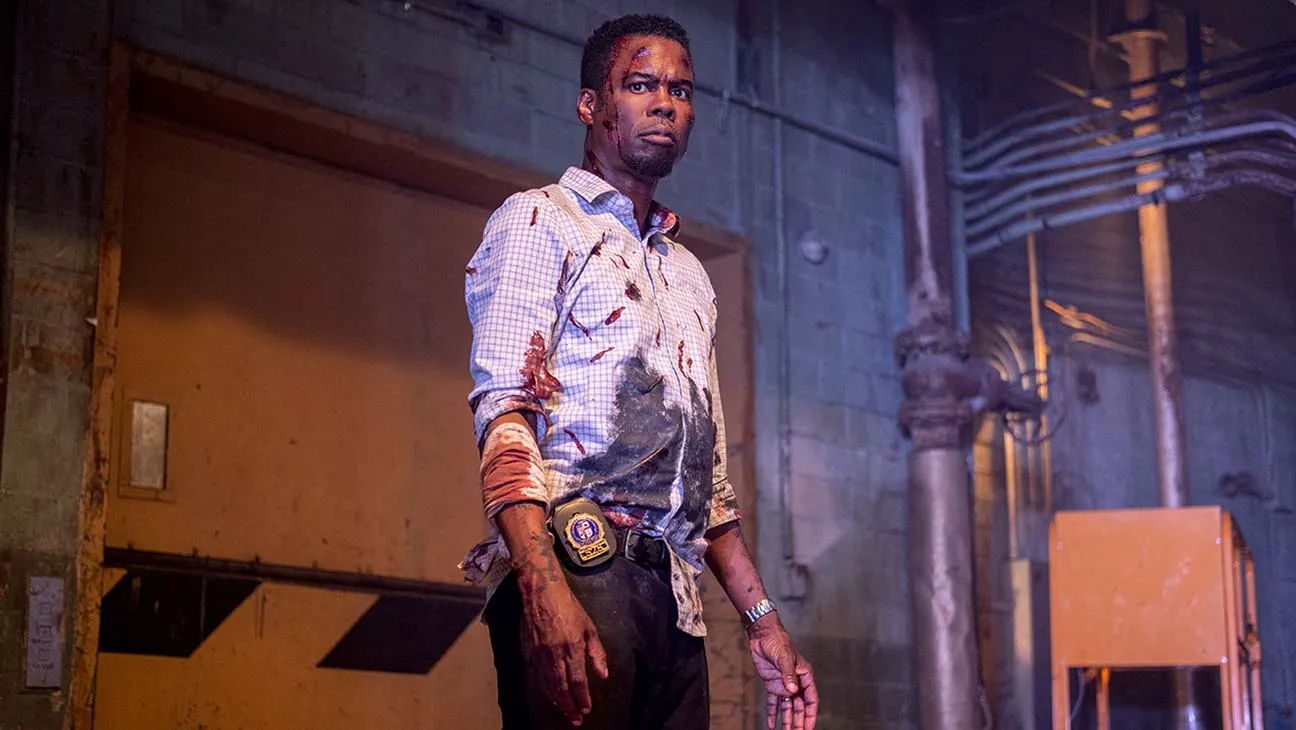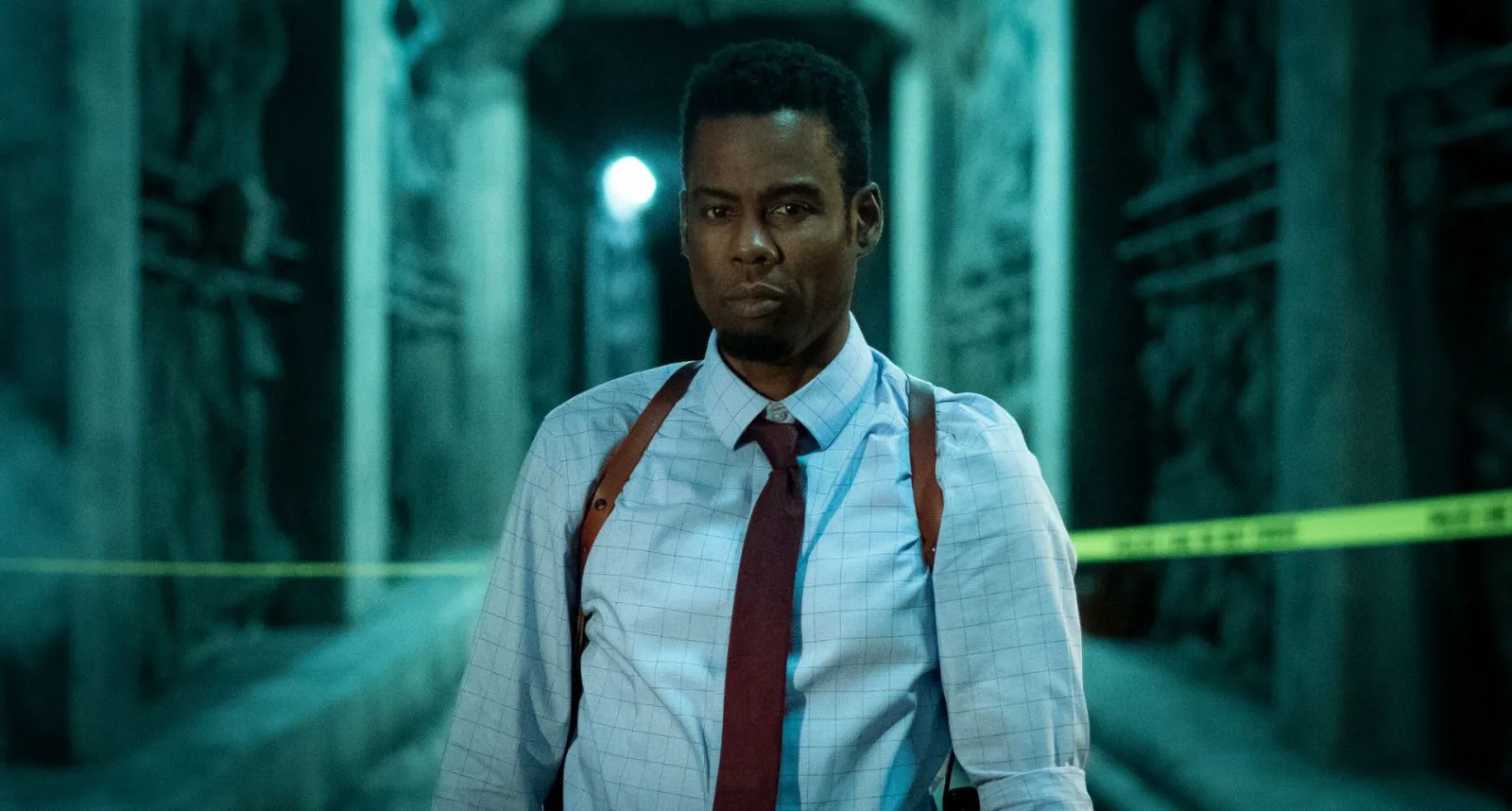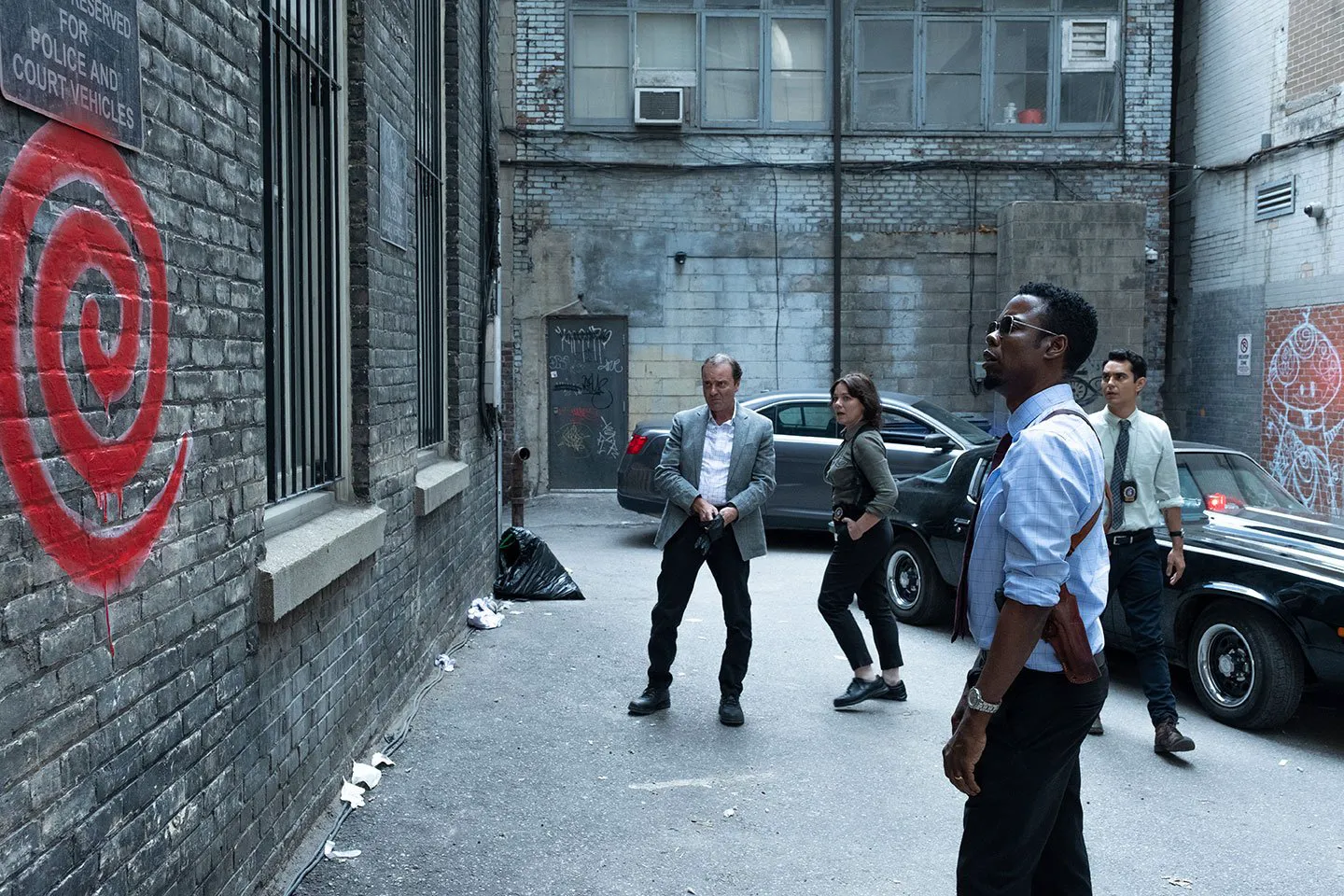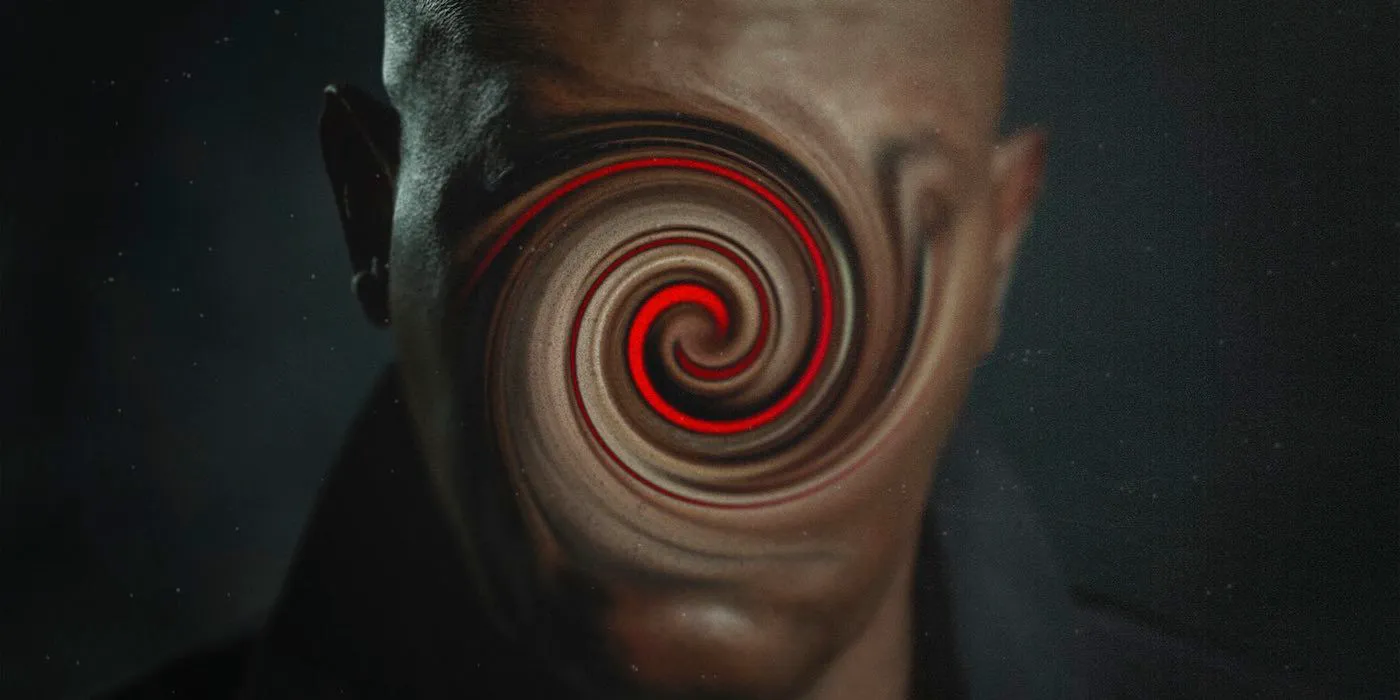Spiral: From the Book of Saw - A Fresh Take on Torture Porn?
Zeke Banks (Chris Rock) is New York’s last honest cop. Years ago, he exposed his partner for corruption and murder, leading to his imprisonment. However, Zeke’s reputation was tarnished in the process. Now, he’s known as a rat, enduring taunts from colleagues and comparisons to his legendary father, Chief of Police Marcus (Samuel L. Jackson), who once had a tight grip on crime but is now enjoying retirement. Soon, police officers start turning up dead on the streets – one crushed by a train, another electrocuted – all eerily reminiscent of Jigsaw’s murders. John Kramer is dead, but his followers are eager to emulate their teacher, leading suspicion to fall on a new, unknown imitator. The tough Zeke demands to be assigned to the case, takes along a pesky young partner (Max Minghella), and sets out to find the villain. However, there’s a chance that half the department will be dead before he catches the maniac.

Chris Rock as Zeke Banks in “Spiral: From the Book of Saw”
The “Saw” franchise is now over two decades old. Starting as a revisionist low-budget thriller, the series gradually morphed into bloody and cynical torture porn – a term journalists use to label films that depict violence in graphic detail. But the franchise wasn’t just about “bread and circuses.” It also explored the aftermath of 9/11 and the US invasion of Iraq. John Kramer, a white cisgender man, realized the fragility of the world after a series of catastrophes and embarked on a crusade to teach people how to live “correctly.” What “correctly” means is, of course, not up to him, but his nihilism and assertiveness take their toll. Like American soldiers at Abu Ghraib prison, he pushed his agenda and made violence his covenant. “Saw” isn’t just about torture and abuse; it’s also about how witnessing these horrors makes one complicit and why aggression, even with the best intentions, cannot change the world.
A Reflection of Modern Society

Chris Rock as Zeke Banks in “Spiral: From the Book of Saw”
But time passes. The Abu Ghraib incident, like the Twin Towers attack, hasn’t been forgotten (such a comprehensive trauma would be hard to forget even in a century), but it has faded into the background. In an era of police brutality and BLM, and especially of Trumpism, coronavirus, and the new Cold War, reflecting on the invasion of Iraq is the domain of the eternally nostalgic (or eternally grieving). “Spiral: From the Book of Saw” is nothing less than a desperate, albeit clumsy, vivisection of American society in the context of internal state violence. It soon becomes clear that every punished cop was tainted in some way: killing innocents, stealing, covering up for colleagues. Compared to the Oscar-winning and, in general, well-made but sickeningly sweet short film “Two Distant Strangers,” where a black man relives a Groundhog Day, escaping a crazy cop, “Spiral” looks like a much more topical and elegant film.
Flipping the Classic Dilemma

Chris Rock as Zeke Banks in “Spiral: From the Book of Saw”
Now, the victims of the maniac are conventional villains: people who would shoot you in the back without batting an eye; people whose job responsibilities include violence (with the sole exception that this violence is for the common good). The classic “Saw” dilemma is, in general, preserved but turned inside out: “Spiral” isn’t about private manifestations of cowardice, be it a greedy insurance agent or former criminals returning to a life of crime, but about the system in general. Or rather, about who constructs and protects this system. How to suppress a repressive authority? Will the death of several of its representatives change anything, and will their killer become the same kind of criminal? As ironic as it sounds, the American franchise looks no less relevant in the context of the post-Soviet reality.

Samuel L. Jackson as Marcus in “Spiral: From the Book of Saw”
Police brutality and other law enforcement agencies are, of course, a pressing problem not only in our state. It is much more difficult here not to identify with the maniac, but it is in this dilemma that the whole complexity of the conflict of the new part lies. Obviously, everyone loves “Saw” for the bloody murders - and they are here. Not as many as in all the previous episodes (“Spiral” in its peacefulness is more like the original Wan film), but torn fingers and torn tongues are guaranteed. Another thing is that the franchise often walked on the verge of audience perception. On the one hand, there is a killer with a moral code, on the other - his immoral victims. It is easy to take the side of Kramer and his comrades, but it is not worth it. In a world where there is already a lot of violence, the self-proclaimed messiah only begins to multiply it.
A Fresh and Ironic Take
Surely someone will also call “Saw” blaxploitation: they say, the heroes have become dark-skinned, rap plays everywhere, and the problem of police brutality is pure pandering to BLM. There is, of course, no exploitation in “Spiral”: the franchise has simply always deftly picked up the zeitgeist, from the invasion of Iraq to the popularity of rock, which used to play on the credits. But there is a comic tone, sometimes irony and caustic smirks, that has appeared for the first time in many years. If the appearance of Chris Rock brought something to the franchise, it was some freshness, enthusiasm, if not revisionist (a reinterpretation of the entire series is far away), then fanatical. In general, it turns out just such a movie: for fans who were waiting not for a lousy Jigsaw, but for a real revival of history. And also for those who are too lazy to watch all the sequels. To understand the events of “Spiral,” you only need to be familiar with the first part and a cursory Wikipedia reading of the plot of all the others. A universal film in relation to the audience, very funny and old-school witty - this is what horror reboots, remakes and postmodern sequels have lacked in recent years. John Kramer is dead, long live John Kramer!